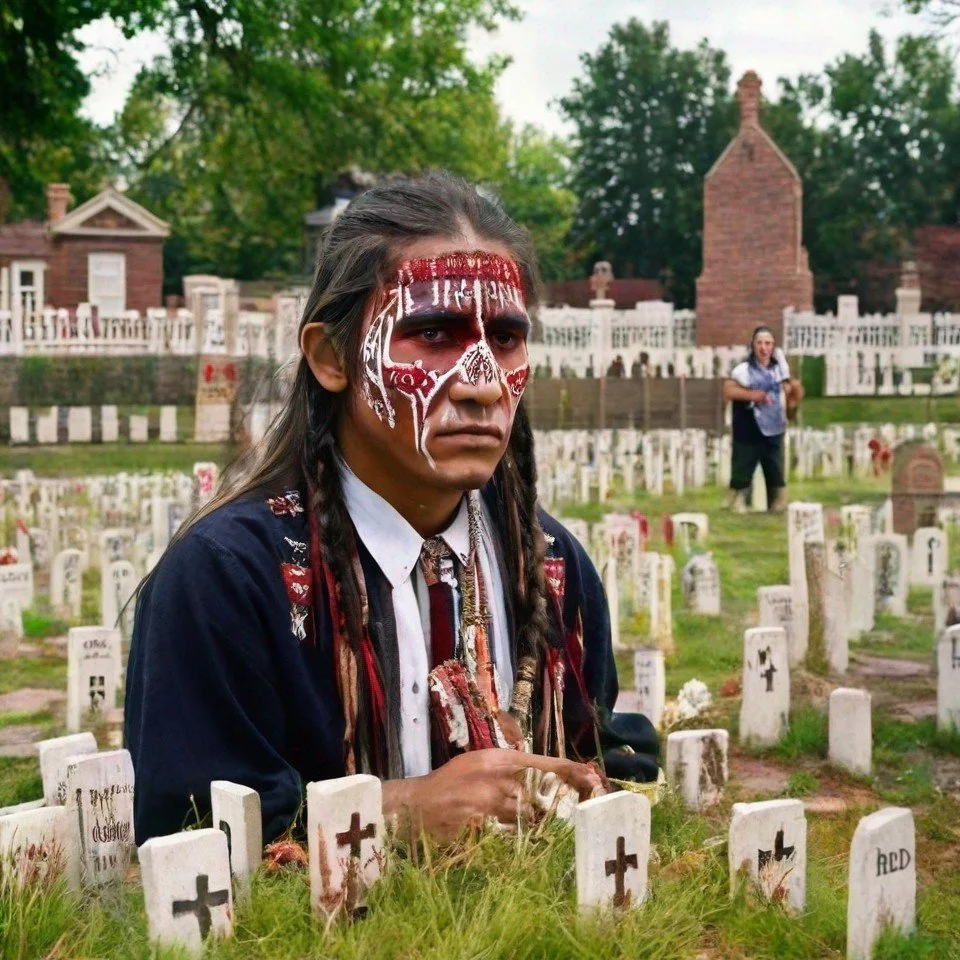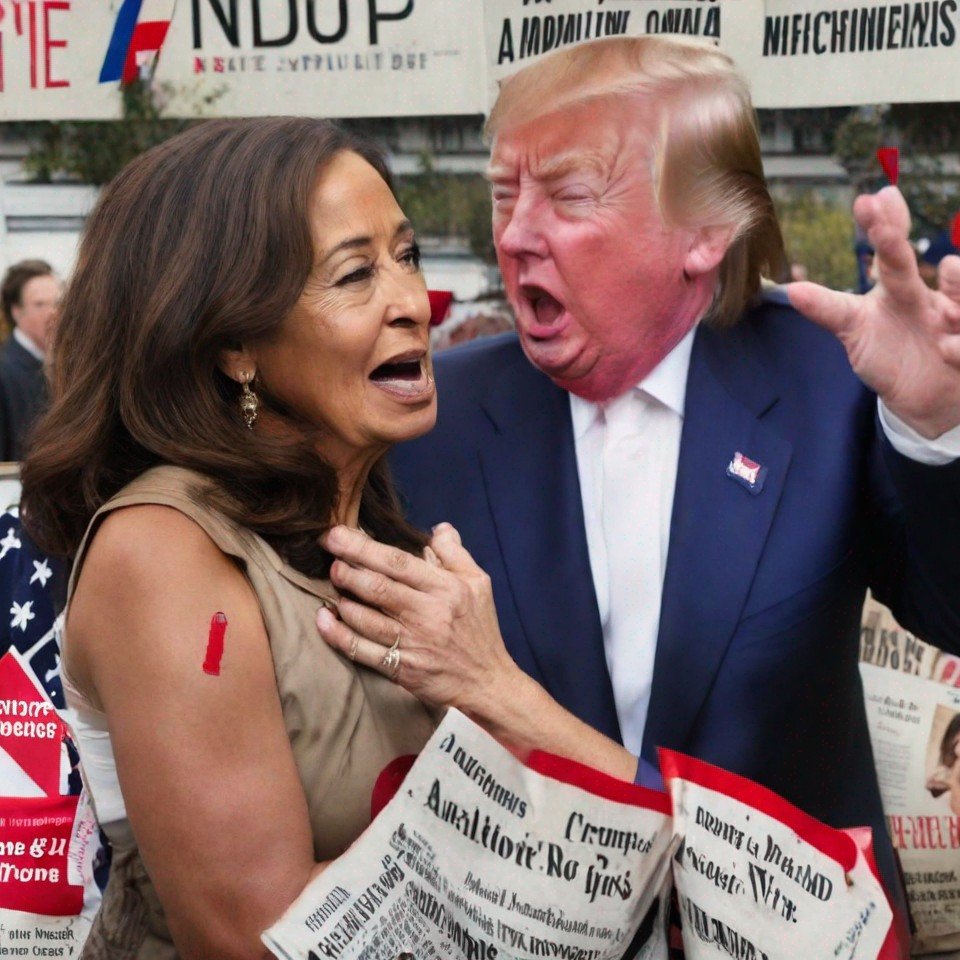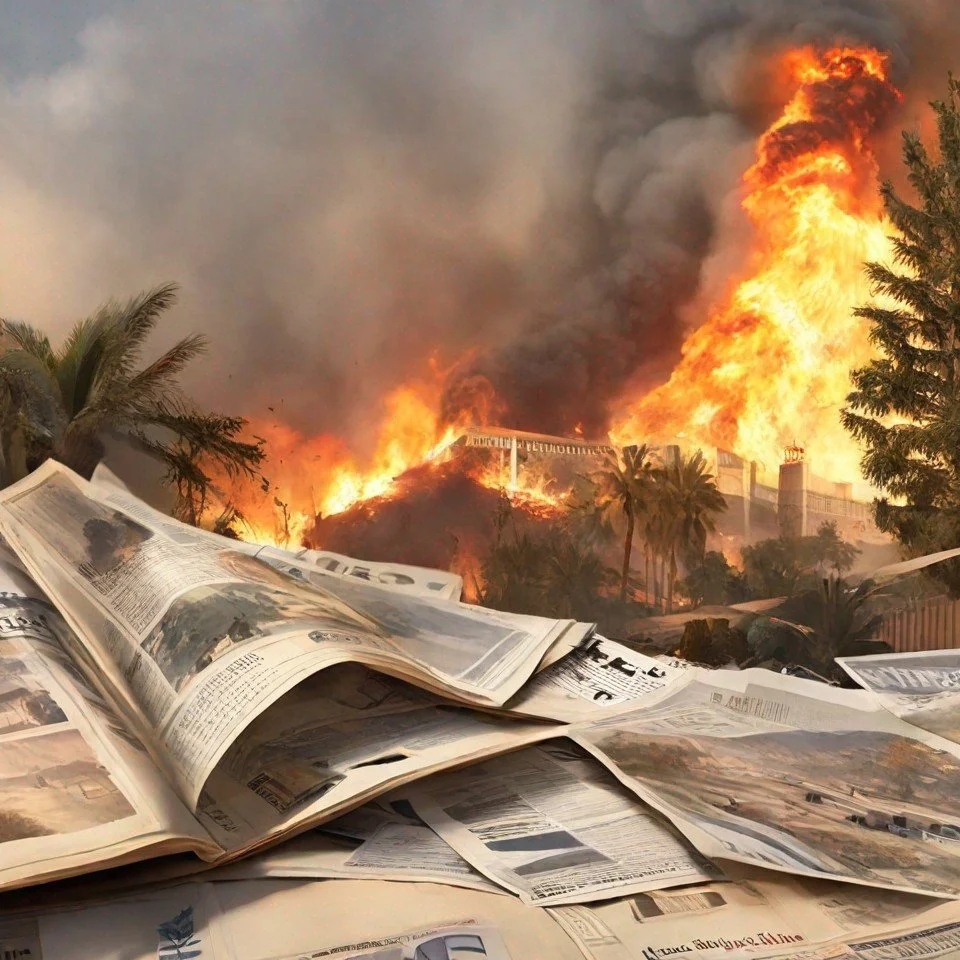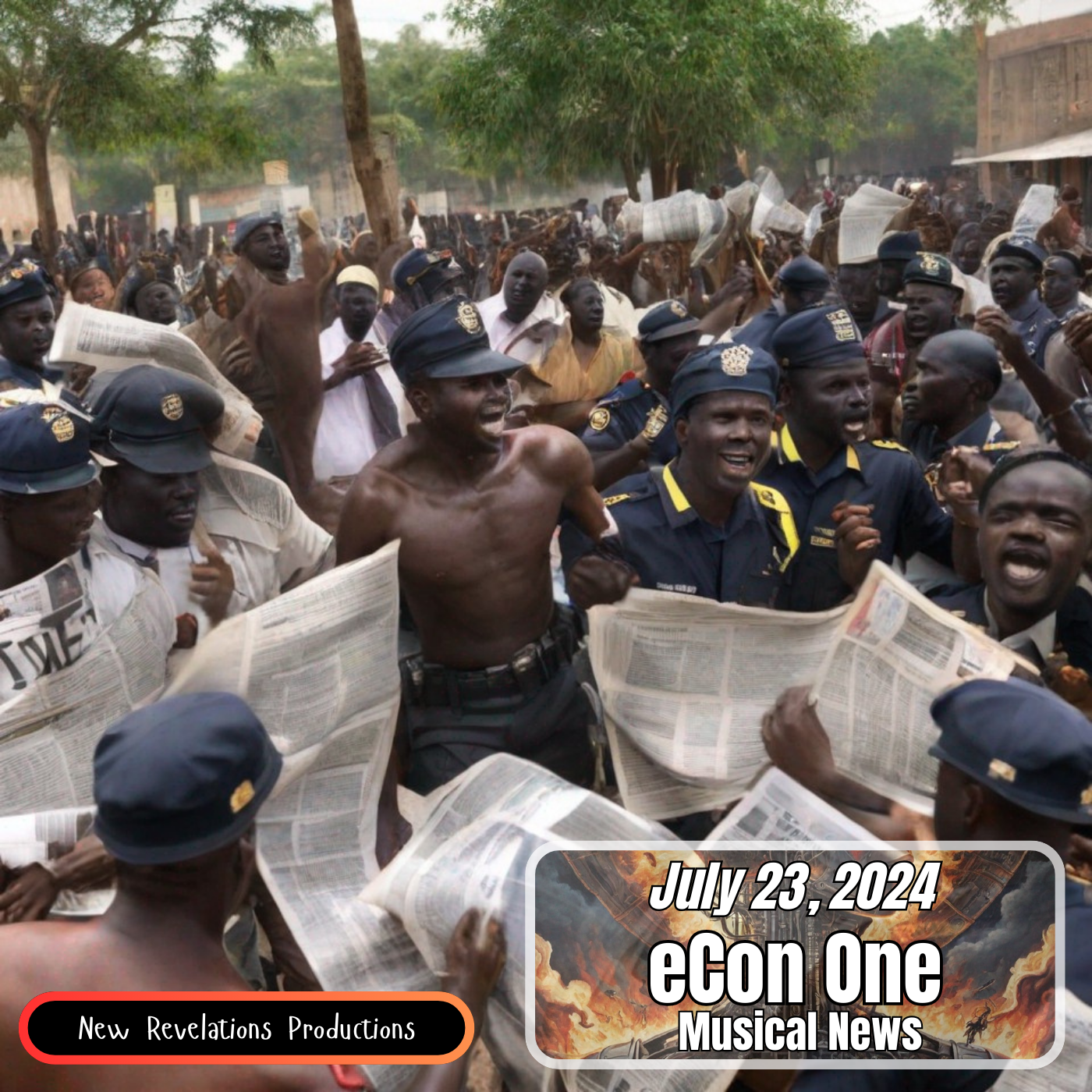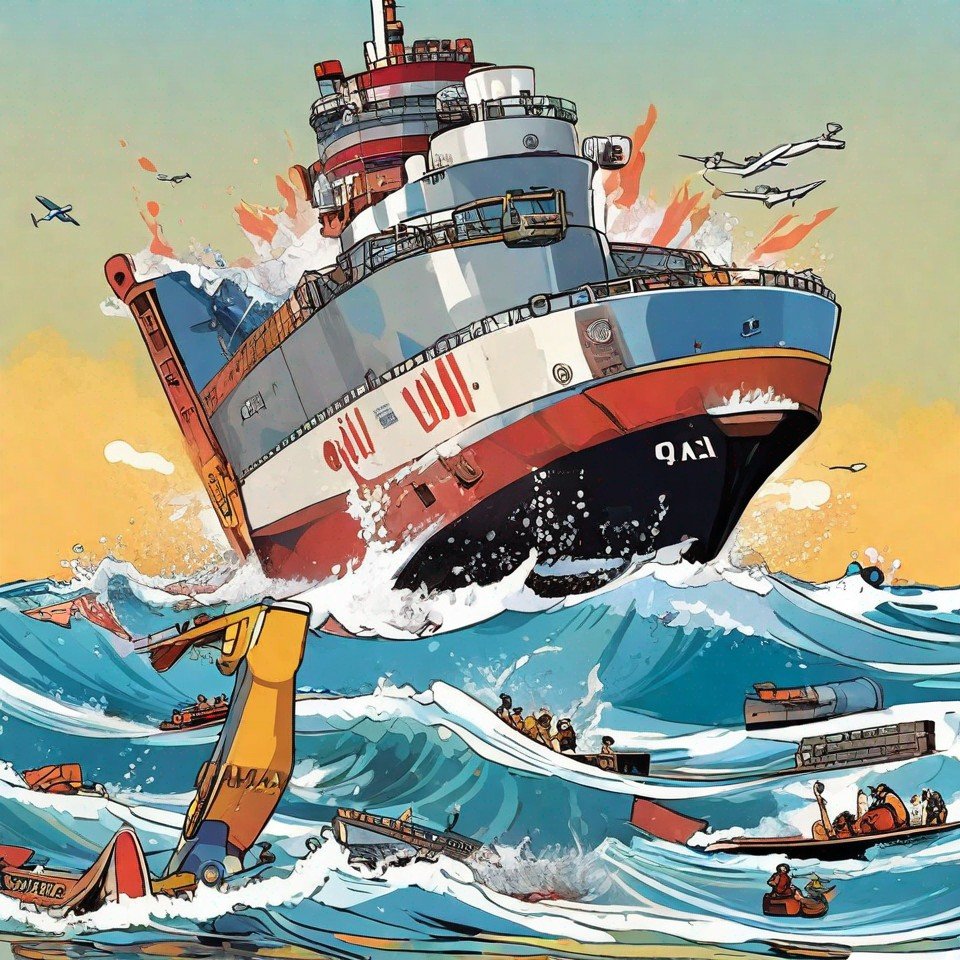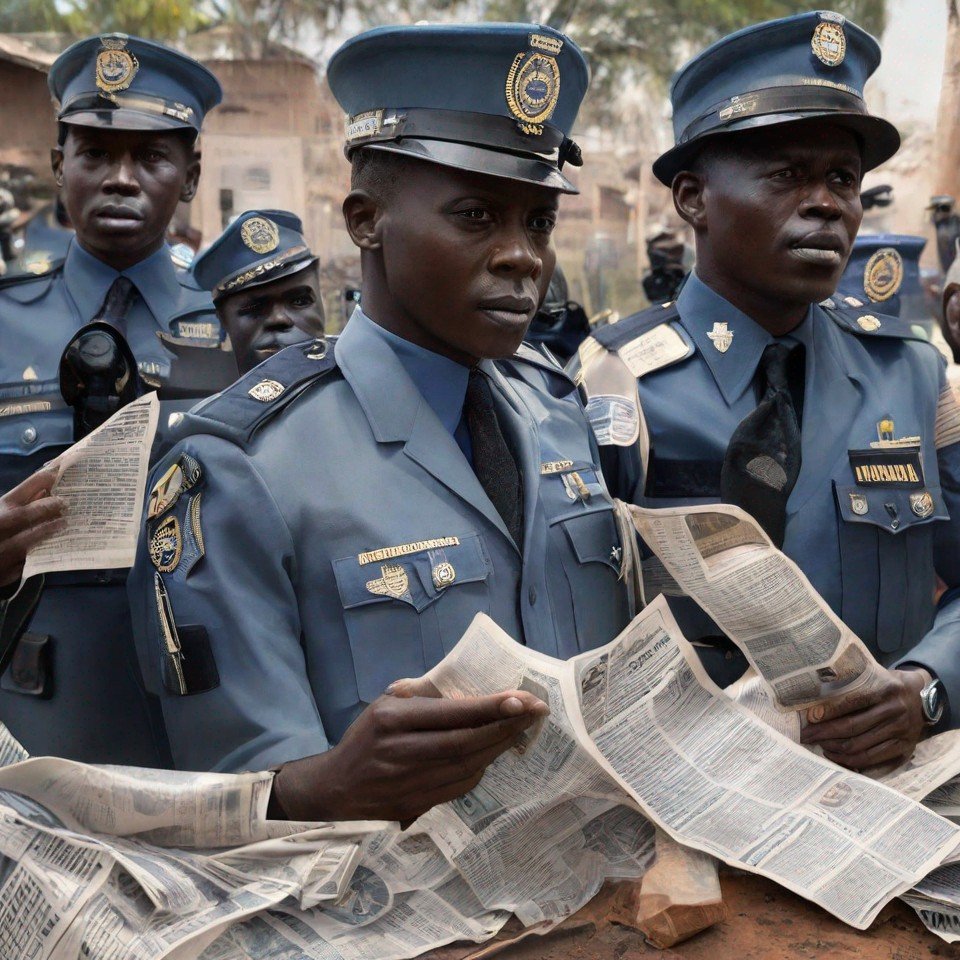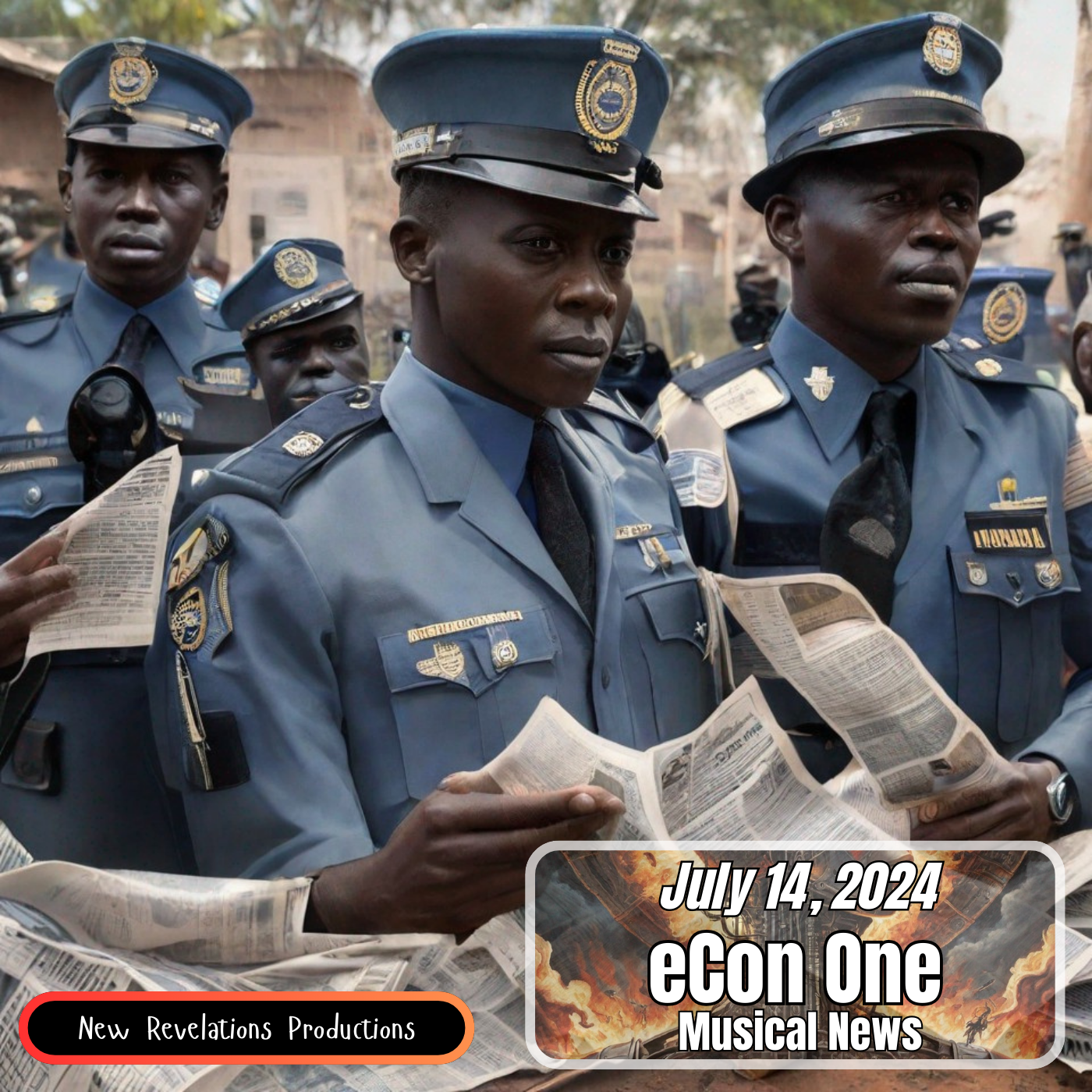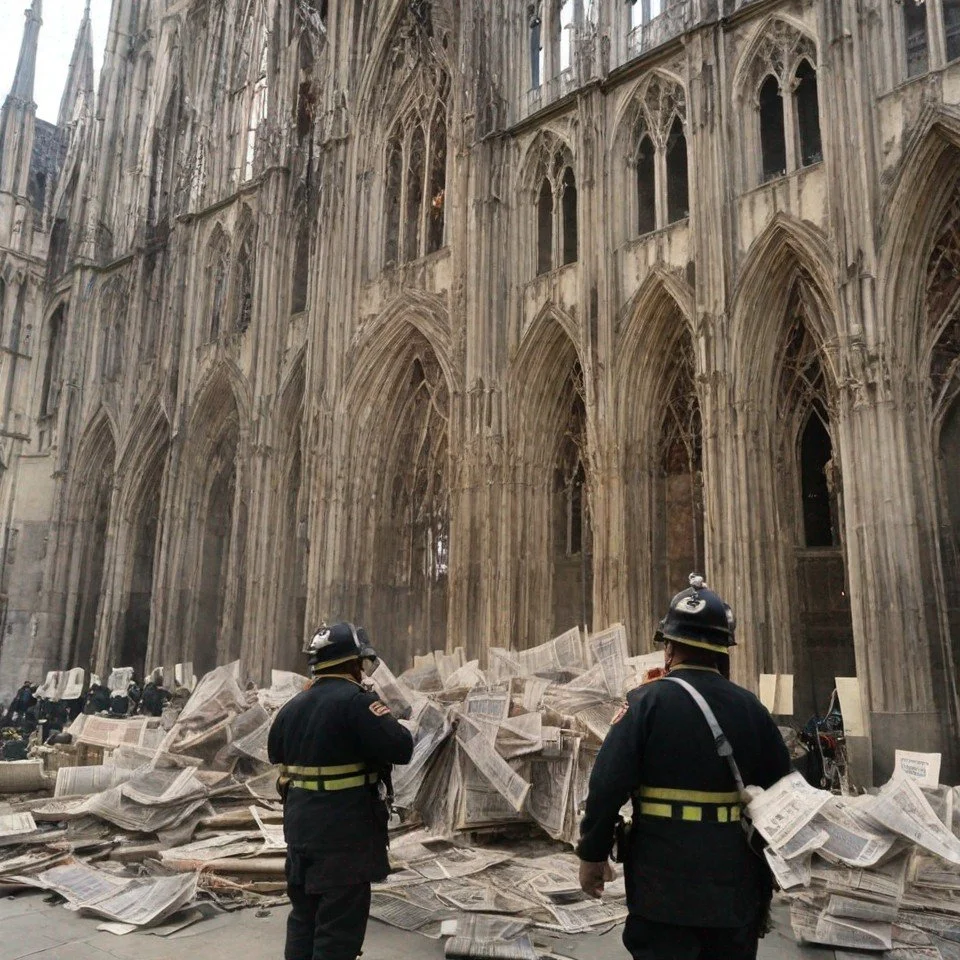July 30, 2024 Newsy Bits
Israel's airstrike on Beirut, aimed at a Hezbollah commander, highlights the escalating tensions in the region following recent violence in the Golan Heights. This military action underscores Israel's commitment to targeting perceived threats, but it also raises the stakes for further conflict. As retaliatory cycles intensify, the potential for broader regional instability becomes increasingly likely.
The revelation that nearly 1,000 Indigenous children died in U.S. boarding schools is a harrowing reminder of the historical injustices faced by Native communities. This tragic legacy of cultural assimilation and neglect calls for a reckoning with the past and a commitment to healing. As awareness grows, it is essential to honor these lost lives and advocate for reparative measures that acknowledge and address these injustices.
In Beirut, a palpable sense of anxiety and resignation permeates the atmosphere as residents brace for the possibility of war with Israel. The threat of escalation looms large, leaving many to grapple with the uncertainty of their safety and future. This fear reflects the broader regional tensions, where the cycle of conflict seems inescapable, and the toll on civilians is increasingly dire.
The unrest following the Venezuelan election, where President Nicolás Maduro was declared the winner, showcases the deep divisions within the country. Demonstrations against the election results reflect widespread discontent and accusations of electoral fraud. As the situation unfolds, the international community's response will be crucial in determining the path forward for Venezuela amid ongoing economic and humanitarian crises.
Anjem Choudary's sentencing to life in prison for directing a terrorist organization underscores the ongoing struggle against extremism and radicalization. This case serves as a stark reminder of the challenges faced by societies in combating ideologies that incite violence. As authorities seek to prevent future threats, the focus must also turn to addressing the underlying issues that contribute to radicalization.
Residents of Belgorod, a Russian region bordering Ukraine, are gripped by fear as the conflict spills over into their lives. The anxiety about potential military action and its repercussions creates a tense atmosphere, illustrating the conflict's far-reaching impacts. As the situation remains volatile, the need for dialogue and resolution becomes increasingly urgent for the safety of all affected communities.
Hodeidah port in Yemen, a critical economic lifeline, now faces threats amid the escalating tensions involving Israel. This situation exacerbates an already dire humanitarian crisis in Yemen, where access to essential goods is increasingly precarious. The potential for further disruption highlights the urgent need for international intervention to protect civilians and ensure the flow of humanitarian aid.
The United States' decision to provide a $500 million military aid boost to the Philippines reflects rising tensions in the region, particularly concerning China's assertiveness. This support underscores the U.S. commitment to its allies in Asia and aims to bolster the Philippines' defense capabilities. As geopolitical dynamics shift, the implications for regional security and stability will be closely monitored.
The headlines present a complex tapestry of conflict, historical reckoning, and geopolitical shifts that resonate across the globe. From the violent flare-ups in the Middle East to the legacy of injustice in the United States, the events remind us of the urgent need for understanding, accountability, and collaborative solutions. As societies confront these multifaceted challenges, fostering dialogue and promoting peace will be essential for a more stable future.
July 29, 2024 Newsy Bits
The protest by Israeli far-right politicians against the arrest of soldiers suspected of abuse highlights a deepening divide within Israeli society regarding military conduct and accountability. This incident raises critical questions about the broader implications of militarization on civil rights and the rule of law. As political figures rally around the soldiers, it reflects a tension between national loyalty and the pursuit of justice.
The declaration of a polio epidemic in Gaza marks a troubling milestone in an already dire health crisis exacerbated by ongoing conflict and instability. This outbreak underscores the severe consequences of disrupted healthcare systems and the urgent need for international aid and intervention. As the region grapples with this resurgence, it serves as a stark reminder of the vulnerabilities faced by populations caught in protracted crises.
Vice President Kamala Harris’s strong critique of former President Trump regarding the new six-week abortion ban in Iowa emphasizes the increasing polarization over reproductive rights in the United States. As states enact restrictive laws, the political discourse surrounding abortion is likely to intensify ahead of the 2024 elections. This issue not only affects legislative agendas but also shapes the narratives of candidates vying for public support.
The tragic stabbings of two children in Southport, UK, have sent shockwaves through the community and reignited discussions about youth violence and safety. The arrest of a 17-year-old suspect raises questions about the underlying factors contributing to such violence among young people. As the community mourns, it also calls for a deeper examination of societal issues and preventive measures to safeguard children.
The divergent global reactions to Venezuela's disputed election reflect the polarized perspectives on the legitimacy of the Maduro government. While some nations support claims of fraud and call for accountability, others endorse the election results, complicating international relations. This split underscores the challenges facing Venezuela as it navigates both internal dissent and external diplomatic pressures.
President Joe Biden's proposals to reform the Supreme Court signal a significant moment in American politics, aiming to address concerns about judicial impartiality and representation. These reforms could reshape the court's influence on critical issues, from civil rights to healthcare. As debates surrounding these proposals unfold, the implications for the balance of power within the judiciary will be closely scrutinized.
Turkish President Recep Tayyip Erdogan's comments about potential intervention in the Israel-Gaza conflict escalate the rhetoric surrounding an already volatile situation. This statement not only reflects Turkey's strategic interests in the region but also raises concerns about further international entanglement. As tensions mount, the potential for military involvement adds a layer of complexity to an already fraught geopolitical landscape.
Israel's recent drone strikes in Lebanon mark a concerning escalation in hostilities that could destabilize the already fragile regional balance. This military action raises alarms about the potential for broader conflict and the impact on civilian populations. As fears of escalation grow, the international community's response will be crucial in addressing the underlying tensions and promoting dialogue.
These headlines reveal a world grappling with profound challenges, from public health crises and political upheaval to issues of violence and international conflict. As societies navigate these tumultuous waters, the necessity for dialogue, accountability, and humanitarian support becomes ever more critical. In a time of division, the pursuit of understanding and collaboration remains essential for fostering a more stable and just global community.
July 28, 2024 Newsy Bits
The recent reports of Mali rebels claiming a significant victory over government forces and Russian mercenaries underscore the escalating conflict in the region. This development reflects a broader struggle for power and control, fueled by local grievances and external influences. As the situation unfolds, it raises questions about the effectiveness of foreign military interventions and the long-term stability of Mali.
In a striking demonstration of fundraising prowess, Vice President Kamala Harris’s campaign has reportedly raised $200 million in just one week. This remarkable figure not only highlights her appeal among voters but also signals the intense competition leading up to the 2024 presidential election. Such financial backing could significantly bolster her campaign's visibility and outreach, shaping the political landscape in the coming months.
Russian President Vladimir Putin's warning of a potential Cold War-style crisis in response to US missile deployments in Germany signals a troubling escalation in geopolitical tensions. This rhetoric evokes memories of past confrontations and emphasizes the delicate balance of power in Europe. As both sides navigate this fraught landscape, the implications for global security remain uncertain and concerning.
The United States’ decision to revamp its military command structure in Japan reflects growing concerns over China's assertive posture in the region. This strategic shift is aimed at enhancing deterrence and ensuring regional stability amid rising tensions. As the US fortifies its alliances, the response from China will be crucial in determining the future dynamics of security in the Asia-Pacific.
As Venezuela awaits the results of its recent elections, the political atmosphere is charged with anticipation and uncertainty. The challenge to President Nicolás Maduro’s long-standing grip on power raises hopes for potential change amidst ongoing economic and humanitarian crises. The outcome could either affirm Maduro’s rule or usher in a new chapter for the beleaguered nation, making it a pivotal moment for Venezuelans.
The aftermath of the devastating landslides in Ethiopia’s Gofa region has left communities grappling with profound horror and grief. As the nation mourns the loss of life and faces the daunting task of recovery, the psychological impact on survivors is immeasurable. This tragedy serves as a stark reminder of the vulnerability of communities to natural disasters and the urgent need for effective disaster preparedness and response strategies.
The headlines from around the world reflect a tapestry of conflict, resilience, and political maneuvering. From the struggles in Mali and Venezuela to the geopolitical tensions in Europe and Asia, these events highlight the complexities of our interconnected global landscape. As we navigate these challenges, the human spirit's capacity for resilience and adaptation remains a beacon of hope amidst turmoil.
July 27, 2024 Newsy Bits
The rapidly expanding wildfire in California, forcing thousands to evacuate, underscores the increasing frequency and severity of climate-related disasters. As communities grapple with the immediate threat to life and property, the need for robust disaster preparedness and response strategies becomes ever more urgent. This situation serves as a reminder of the importance of addressing climate change to mitigate future risks.
The International Olympic Committee's apology for mistakenly introducing South Korean athletes as North Korean highlights the sensitivities surrounding national identities, particularly in a politically charged context. This incident reflects the broader complexities of diplomacy in sports and the need for accuracy and respect in international events. Such missteps can have significant implications for relationships between nations, especially in regions with historical tensions.
The oil leak from a capsized tanker off the Philippines poses significant environmental risks, threatening marine ecosystems and coastal communities. This incident highlights the challenges of maritime safety and the urgent need for effective regulations and response mechanisms. Protecting the environment must be a priority as nations navigate the complexities of shipping and oil transportation.
Vice President Kamala Harris's shift in tone regarding the Gaza conflict reflects the evolving discourse around U.S. foreign policy in the region. While advocates argue that American voters are seeking a more active and compassionate response, this situation underscores the complexities of balancing international relations with humanitarian concerns. Engaging with diverse perspectives is crucial to formulating a foreign policy that resonates with the public's values.
The tragic loss of 11 lives due to a rocket attack in the occupied Golan Heights highlights the ongoing volatility in the region. This incident serves as a stark reminder of the persistent conflict and its devastating impact on civilian populations. It emphasizes the urgent need for diplomatic efforts to foster peace and stability, as well as the protection of those caught in the crossfire of geopolitical tensions.
These headlines reveal a world grappling with environmental crises, geopolitical tensions, and the complexities of international relations. Each story underscores the urgent need for proactive measures, whether in addressing climate change, fostering diplomatic dialogue, or ensuring the safety of vulnerable communities. As we confront these challenges, a commitment to collaboration and empathy will be essential in creating a more stable and sustainable future.
July 26, 2024 Newsy Bits
The upcoming opening ceremony of the Paris 2024 Olympics promises to be a spectacular celebration of culture and athleticism, transcending borders and uniting nations. As the first Olympics held in a major city on water, the event is set to showcase Paris in a unique light. This grand occasion not only highlights the spirit of competition but also serves as a platform for promoting global unity and cooperation.
The detention of 95 Libyans by South African police at a suspected military camp raises serious concerns about regional security and the ongoing conflicts in Libya. This incident highlights the complexities of international relations and the struggle against militia influence in North Africa. It underscores the urgent need for diplomatic interventions to foster peace and stability in the region.
The alarming displacement of over 180,000 individuals from Gaza’s Khan Younis in just four days reflects the severe humanitarian crisis unfolding in the region. This mass displacement emphasizes the urgent need for international humanitarian aid and a peaceful resolution to ongoing conflicts. Protecting civilians and ensuring their safety must be a priority for the global community.
The UK's decision not to challenge the International Criminal Court's arrest warrant for Israeli Prime Minister Netanyahu marks a significant moment in international law and accountability. This development raises questions about the implications for diplomatic relations and the pursuit of justice in conflict zones. It reflects a growing concern over the actions of political leaders and the necessity for accountability on the global stage.
Reports of ‘malicious acts’ disrupting the French rail network ahead of the Paris Olympics highlight the vulnerabilities of infrastructure in the face of potential threats. Ensuring the safety and reliability of transportation is crucial for the success of such a high-profile event. This situation calls for heightened security measures and vigilance to protect both athletes and attendees during the games.
The arrest of notorious drug lord ‘El Mayo’ Zambada and the son of ‘El Chapo’ in Texas marks a significant blow to drug trafficking organizations in Mexico. This operation underscores the ongoing battle against organized crime and the complexities of international drug enforcement. Such actions highlight the need for continued collaboration between nations to combat drug trafficking and its associated violence.
These headlines reflect a world facing multifaceted challenges, from humanitarian crises and security threats to significant cultural events. Each story illustrates the interconnectedness of global issues and the varying responses required to address them effectively. As we navigate these complexities, fostering international cooperation and prioritizing human rights will be essential in shaping a more just and peaceful future.
July 25, 2024 Newsy Bits
The defense by a Bangladeshi minister regarding the government's response to recent protests highlights the tension between authority and public dissent. As calls for an independent investigation grow, it becomes evident that the government's handling of civil unrest is under intense scrutiny. Ensuring accountability and respecting citizens' rights to protest are crucial for maintaining democratic principles.
The UN chief's urgent call for action to address the so-called "extreme heat epidemic" underscores the escalating climate crisis that affects millions globally. Rising temperatures not only threaten public health but also exacerbate existing environmental challenges. Immediate and coordinated international efforts are essential to mitigate these impacts and protect vulnerable populations.
The tragic capsizing of a boat carrying 45 refugees off the coast of Yemen sheds light on the perilous journeys many undertake in search of safety. This incident highlights the broader humanitarian crisis faced by individuals fleeing conflict and persecution. It calls for a renewed commitment from the international community to provide support and safe passage for those in desperate need.
Typhoon Gaemi's impact on the Chinese seaboard serves as a stark reminder of nature's power and the vulnerabilities of coastal regions. With authorities issuing warnings about potential flash floods, the need for effective disaster preparedness and response strategies becomes increasingly apparent. Climate change continues to intensify weather events, making resilience a top priority for affected communities.
The thrilling match between Spain and Japan, ending in a 2-1 victory for Spain, is a testament to the growing competitiveness and popularity of women's football. As anticipation builds for the Paris 2024 Olympics, such matches foster greater visibility for female athletes and inspire future generations. Celebrating these achievements is essential for advancing gender equality in sports.
As Typhoon Gaemi approaches China's Fujian province following a tragic ship sinking off Taiwan, the urgency for disaster response measures intensifies. The dual threat of severe weather and maritime accidents underscores the need for robust safety protocols and emergency preparedness. Communities must be equipped to face the challenges posed by natural disasters and ensure the safety of their residents.
These headlines reflect a world grappling with environmental challenges, humanitarian crises, and social unrest. Each story emphasizes the interconnectedness of global issues and the urgent need for collaborative solutions. As we confront these challenges, fostering dialogue and implementing effective policies will be crucial in building a more resilient and equitable world for all.
July 24, 2024 Newsy Bits
The recent video of a British police officer kicking a man in the head has ignited widespread outrage, highlighting ongoing debates about police conduct and accountability. Incidents like this raise critical questions about the use of force and the need for reform within law enforcement agencies. Public trust is crucial for effective policing, and such actions severely undermine that trust.
Hezbollah's release of drone footage showcasing an Israeli airbase signals escalating tensions in the region. This development not only raises alarms about military capabilities but also reflects the ongoing conflict dynamics in the Middle East. Such actions can provoke responses that further destabilize an already volatile area, emphasizing the need for diplomatic efforts to mitigate conflict.
Japan's protest against Russia's ban on key business executives, including the head of Toyota, reveals the complexities of international relations amid geopolitical tensions. This situation underscores the intertwining of commerce and diplomacy, illustrating how economic sanctions can impact global business leaders. Japan's response may shape future negotiations and alliances as countries navigate these turbulent waters.
The tragic plane crash in Kathmandu, resulting in the deaths of 18 individuals, highlights the ongoing safety challenges in aviation, particularly in mountainous regions. Nepal's difficult terrain poses significant risks for air travel, raising concerns about regulatory oversight and operational safety. Each incident is a reminder of the fragility of life and the importance of stringent safety measures in aviation.
FBI Director Christopher Wray's testimony before lawmakers regarding the Trump rally shooting underscores the complexities of law enforcement's role in politically charged environments. The scrutiny on federal agencies reveals public concern over accountability and transparency in handling politically sensitive incidents. Such discussions are vital for fostering trust in institutions that are meant to protect citizens.
Israeli Prime Minister Netanyahu's address to a joint session of Congress reflects the enduring support between the U.S. and Israel, especially amid rising tensions in the region. His speech likely aimed to reinforce alliances and garner support for Israel's policies. However, it also serves as a reminder of the intricate balance of power and the differing perspectives on peace in the Middle East.
The investigation into an alleged plot to overthrow the Georgia government speaks to the increasing polarization and unrest in American politics. Such actions raise alarms about the stability of democratic institutions and the lengths to which individuals may go to challenge governmental authority. Vigilance and active participation in democracy are essential to safeguard against such threats.
The alarming report of the average global temperature surpassing the previous day's record emphasizes the urgent reality of climate change. This trend not only affects weather patterns but also has profound implications for ecosystems and human health. It serves as a rallying cry for immediate action to combat climate change on a global scale.
The New Zealand inquiry revealing that 200,000 individuals were abused while in state and religious care is a harrowing testament to systemic failures in safeguarding vulnerable populations. This alarming figure highlights the need for accountability and comprehensive reforms to protect those who depend on state care. Acknowledging this dark chapter is essential for healing and improving future care systems.
These headlines collectively paint a picture of a world grappling with issues of justice, safety, international relations, and climate change. Each event serves as a reminder of the interconnectedness of our global society and the pressing need for responsible governance, accountability, and compassion. As we navigate these challenges, it is crucial to foster dialogue and action that prioritize the well-being of individuals and communities worldwide.
July 23, 2024 Newsy Bits
The arrest of Jewish activists by US Capitol Police as they call for an arms embargo on Israel reflects the growing tensions within American society regarding foreign policy and activism. This incident underscores the complexities of political expression in a democratic nation, where differing views on sensitive issues can lead to significant confrontations. As grassroots movements gain momentum, the discourse surrounding U.S. support for Israel continues to evolve, sparking intense debate.
Meanwhile, US regulators are investigating Delta Airlines as the company grapples with recovery from a recent outage. Such scrutiny highlights the challenges faced by major corporations in maintaining operational reliability, especially in the travel sector. As consumers increasingly demand transparency and accountability, the outcome of this investigation could have lasting implications for industry standards and customer trust.
In Yemen, UN envoy Hans Grundberg has warned of a “devastating” regional escalation, emphasizing that threats against international shipping are increasing in both scope and precision. This alarming development signals potential risks to global trade routes and the necessity for international cooperation to ensure maritime security. As Yemen remains embroiled in conflict, the call for diplomatic engagement becomes more pressing to prevent further destabilization in an already fragile region.
In India, Prime Minister Modi's decision to allocate billions for job creation and support for allies in the post-election budget reflects a strategic approach to governance. This move aims to address rising unemployment and bolster economic growth, which is crucial for maintaining political stability. As the nation navigates its post-election landscape, the effectiveness of these investments will be closely monitored by both supporters and critics.
The detention of dozens of protesters by Ugandan police during anti-corruption demonstrations highlights the ongoing struggles for political expression and accountability in the country. Such crackdowns on dissent not only stifle voices demanding change but also reveal deeper systemic issues that need addressing. The situation calls for a renewed commitment to human rights and the importance of allowing citizens to advocate for transparency and good governance.
The alarming report of the world’s hottest day recorded recently underscores the urgent reality of climate change. As global temperatures continue to rise, the implications for ecosystems, weather patterns, and human health become increasingly severe. This record serves as a wake-up call for governments and citizens alike to prioritize sustainable practices and address the environmental challenges facing our planet.
In Canada, thousands are fleeing wildfires near Jasper National Park, a stark reminder of the growing frequency and intensity of natural disasters exacerbated by climate change. The displacement of communities due to wildfires raises critical questions about preparedness and resilience in the face of environmental crises. As the impact of climate change becomes more pronounced, a collective response is essential to protect vulnerable populations and preserve natural resources.
The resignation of Secret Service chief Kimberly Cheatle following a shooting incident involving former President Trump raises significant concerns about security protocols and oversight. This departure may prompt a reevaluation of measures in place to protect public figures and ensure the safety of events. The implications for the Secret Service's operational effectiveness will be closely scrutinized in the wake of this leadership change.
Finally, Kamala Harris's sharp criticism of Trump during her first presidential campaign rally signals a reinvigorated Democratic effort to mobilize supporters. Her remarks emphasize the party's commitment to contrasting visions for the future of the nation. As the campaign unfolds, the dynamics between candidates will shape the political landscape, underscoring the stakes involved in the upcoming election.
These headlines illustrate a world grappling with pressing issues, from activism and political accountability to climate crises and leadership transitions. Each story reflects the interconnectedness of global challenges and the urgent need for collective action and dialogue. As we navigate these complexities, fostering understanding and commitment to justice will be crucial in shaping a more equitable and sustainable future for all.
July 22, 2024 Newsy Bits
In her first speech since Joe Biden's withdrawal from the presidential race, Kamala Harris lauded his legacy, emphasizing the achievements of his administration. Her remarks underscore a commitment to continuing the work initiated by Biden, aiming to unify the party and inspire confidence among supporters. This transition period poses both challenges and opportunities as Harris seeks to establish her leadership while navigating the complexities of the upcoming election.
The tragic reports of dozens killed as Palestinians flee Israel’s new offensive in Khan Younis highlight the devastating human cost of ongoing conflict. As civilians are caught in the crossfire, the urgency for humanitarian intervention becomes paramount. This situation not only exacerbates the humanitarian crisis in Gaza but also calls for renewed international efforts to broker a lasting peace and address the root causes of violence.
In Myanmar, the appointment of the military chief as acting president marks a significant consolidation of power amid ongoing political turmoil. This development raises concerns about the future of democracy in the country and the potential for further repression of dissent. The international community must remain vigilant, advocating for the restoration of democratic governance and the protection of human rights in Myanmar.
The sentencing of Russian-American journalist Alsu Kurmasheva to over six years in prison serves as a stark reminder of the risks faced by journalists in authoritarian regimes. This case exemplifies the broader trend of silencing dissent and curtailing press freedom, highlighting the critical role that independent journalism plays in democracy. As media outlets face increasing pressure, the global community must stand in solidarity with those who dare to speak truth to power.
Philippine President Marcos’ assertion that the country "cannot yield" in the South China Sea dispute underscores the complexities of territorial claims in the region. As tensions escalate, it is crucial that diplomatic channels remain open to prevent conflicts from spiraling out of control. The Philippines' stance reflects a commitment to sovereignty while navigating the intricate dynamics of regional and global politics.
The lockdown of the Ugandan opposition's headquarters by security forces ahead of planned protests illustrates the ongoing struggles for political freedom in the country. Such actions often stifle dissent and curtail the rights of citizens to voice their grievances. As tensions rise, the need for dialogue and respect for democratic principles becomes ever more urgent to foster a peaceful political environment.
These headlines paint a vivid picture of a world grappling with political transitions, humanitarian crises, and the ongoing struggle for rights and freedoms. From the legacy of leadership in the United States to the urgent plight of civilians in conflict zones, the stories reflect the interconnectedness of global issues. As we navigate these challenges, a commitment to empathy, dialogue, and advocacy for justice is essential to foster a more equitable and peaceful future for all.
July 21, 2024 Newsy Bits
The ongoing conflict in Gaza remains a focal point of international concern, with ceasefire talks set to restart this week. The urgency for peace in the region highlights the devastating impact of war on civilian life and the broader geopolitical landscape. As negotiations resume, the world watches closely, hoping for a resolution that prioritizes humanitarian needs and long-term stability.
In the United States, Republican nominee Donald Trump’s fiery two-hour speech, filled with mockery of Democrats and repeated false claims about election fraud, underscores the deepening division in American politics. His rhetoric not only galvanizes his base but also raises questions about the integrity of electoral processes. This environment of mistrust poses significant challenges to democratic norms and the potential for constructive political discourse.
The recent decision by Bangladesh’s top court to scrap most quotas, which were linked to deadly unrest, reflects the complex interplay between policy and public sentiment. While intended to promote equity, these quotas have sparked significant backlash, highlighting the necessity for policies that genuinely address the needs of all citizens. This ruling may pave the way for a more balanced approach to social justice, but it also calls for careful management to prevent further unrest.
The inclusion of break dancing as an Olympic sport in Paris marks a cultural shift in the Games, showcasing the evolving nature of athletic competition. From street dance to a prestigious platform, this transition reflects broader societal changes and the recognition of diverse forms of expression. It presents an exciting opportunity for a younger audience to engage with the Olympics, promoting inclusivity in sports.
In a significant diplomatic move, the Philippines has reached a deal with China to avoid clashes over disputed shoals. This agreement highlights the importance of dialogue in resolving territorial disputes in the South China Sea. As nations navigate complex maritime relationships, this deal could serve as a model for peaceful conflict resolution in a region often fraught with tension.
Russia’s claim of intercepting US fighter jets over the Arctic raises concerns about military posturing and international relations. Such encounters can escalate tensions and provoke misunderstandings between nuclear powers. The importance of communication and de-escalation strategies cannot be overstated, as miscalculations in these sensitive areas could have dire consequences.
In a surprising turn of events, President Biden has dropped out of the presidential race amid mounting pressure, a decision that reshapes the political landscape ahead of the 2024 elections. This development not only reflects the challenges he faced within his party but also raises questions about the Democratic strategy moving forward. The implications for party dynamics and voter sentiment will be closely monitored as candidates position themselves for the upcoming election.
Biden's endorsement of Kamala Harris as the Democratic nominee following his withdrawal signals a strategic move to unify the party. This endorsement not only reinforces Harris's leadership role but also aims to maintain continuity in Democratic policies. As the election approaches, her candidacy will be pivotal in galvanizing support and addressing the concerns of a diverse electorate.
Finally, Trump’s ungracious attacks on Democratic opponents following Biden’s withdrawal exemplify the combative nature of contemporary political rhetoric. Such statements may energize his supporters but also risk alienating moderate voters who seek a more constructive political environment. The trajectory of the 2024 elections will largely depend on how candidates navigate the landscape of division and find common ground with the electorate.
These headlines encapsulate a world rife with conflict, political upheaval, and cultural evolution. From the urgent need for peace in Gaza to the shifting dynamics of American politics, each story reflects the complexities of our times. As we confront these challenges, it becomes increasingly clear that fostering dialogue, understanding, and collaboration is essential for building a more harmonious future.
July 20, 2024 Newsy Bits
The discovery of poliovirus in Gaza sewage is a stark reminder of the fragile state of public health amid conflict. Such findings highlight how war-torn regions struggle not only with immediate violence but also with the resurgence of preventable diseases. The implications for both local populations and global health security are profound, as disease knows no borders and can spread rapidly in times of instability.
In Bangladesh, the government's ban on rallies amidst escalating violence underscores the precarious balance between civil rights and public order. As protests spiral out of control, the response reflects a growing tension between the state and its citizens. This situation raises critical questions about the right to dissent and the measures governments take to maintain control, often at the expense of democratic freedoms.
The imposition of a curfew in Bangladesh as the death toll rises from student protests further complicates the narrative. Curfews are often seen as a tool for maintaining order, but they can also exacerbate tensions and lead to greater unrest. The tragic loss of life serves as a poignant reminder of the stakes involved in political expression and the urgent need for dialogue and reform.
The sentencing of US journalist Evan Gershkovich to 16 years in prison in Russia for alleged spying highlights the chilling effects of state control over media and dissent. In an era where information is power, such actions send a clear message to journalists worldwide: the pursuit of truth can come at a steep personal cost. This case exemplifies the broader struggle for press freedom, particularly in authoritarian regimes.
In the Middle East, the Houthi drone strikes on Tel Aviv represent a significant escalation in regional tensions. These attacks signal a shift in the dynamics of conflict, where non-state actors wield increasingly sophisticated technologies. The potential for retaliation and further violence raises alarms about the already fragile peace in the region and the broader implications for international stability.
The tragic boat fire that claimed at least 40 Haitian lives, as reported by the UN migration agency, serves as a heart-wrenching reminder of the dire conditions many face while seeking safety. This incident highlights the urgent need for comprehensive solutions to migration crises, as desperate individuals risk everything in search of a better life. The international community must confront the root causes of such tragedies to prevent further loss of life.
In the United States, President Biden's vow to remain in the race despite mounting pressure from within his party illustrates the complexities of political leadership. As calls for him to step aside grow, it reflects deeper concerns about electability and the direction of the Democratic Party. The dilemma poses significant questions about loyalty, strategy, and the future landscape of American politics.
Finally, the collapse of a bridge in China, resulting in at least 11 deaths and numerous missing, underscores the critical importance of infrastructure safety. Such disasters often prompt scrutiny of government oversight and investment in public works. They serve as a tragic reminder that behind every statistic are lives affected, calling for renewed commitment to ensuring safety and resilience in critical infrastructure.
These headlines reflect a world grappling with a multitude of crises, each interconnected and revealing deeper societal issues. From public health to political unrest and infrastructure safety, the stories remind us of the fragility of peace and stability. As we navigate these challenges, a collective response rooted in empathy, understanding, and action is essential to fostering a more just and secure future for all.
July 19, 2024 Newsy Bits
Far-right Israeli minister Ben-Gvir's inflammatory visit to Al-Aqsa Mosque exacerbates tensions in an already volatile region. Such actions not only provoke anger among Palestinians but also risk igniting broader conflicts. This visit underscores the delicate nature of religious and political sensitivities in Jerusalem and the need for measured approaches to prevent escalation.
Former President Trump’s return to standard attacks on immigrants and President Biden highlights the enduring divisiveness of his political rhetoric. This approach continues to polarize the electorate and distracts from constructive policy discussions. The ongoing focus on such attacks underscores the persistent challenges in achieving unity and addressing substantive issues in American politics.
On the tense border of North Korea, Swiss and Swedish forces play a crucial role in maintaining a fragile peace. Their presence symbolizes international commitment to stability in one of the world's most volatile regions. This delicate balance of peacekeeping efforts underscores the importance of diplomatic and neutral interventions in mitigating potential conflicts.
Senator Jon Tester and House Representative Jim Costa joining calls for President Biden to step aside reflects growing concerns within the Democratic Party about leadership and electability. This internal pressure highlights the party's strategic considerations as it looks toward the 2024 election. The debate over Biden’s candidacy will likely shape the party's direction and unity moving forward.
A drone attack on Tel Aviv, resulting in one death and multiple injuries, underscores the ongoing security threats faced by Israel. This incident highlights the persistent volatility in the region and the complexities of modern warfare. The attack calls attention to the need for robust security measures and the pursuit of peace to prevent further loss of life.
The CrowdStrike IT outage, causing disruption across airlines, banks, and media, demonstrates the vulnerabilities in our interconnected digital infrastructure. Such incidents underscore the critical importance of cybersecurity and the potential widespread impact of technical failures. The chaos caused by this outage serves as a stark reminder of the need for resilient and secure IT systems.
Russia's prosecutor seeking an 18-year sentence for U.S. journalist Evan Gershkovich raises serious concerns about press freedom and the safety of journalists. This case highlights the risks faced by journalists operating in challenging environments and the broader implications for international relations. The potential sentencing underscores the urgency of advocating for press freedom and protecting journalists worldwide.
These headlines paint a picture of a world grappling with political unrest, security threats, and the fragility of peace. From inflammatory actions and divisive rhetoric to the critical role of peacekeepers and the challenges of cybersecurity, each story underscores the interconnected nature of global events. Addressing these issues requires a commitment to dialogue, security, and the protection of fundamental rights, as we strive to navigate the complexities of our modern world.
July 18, 2024 Newsy Bits
China's decision to halt nuclear arms talks with the U.S. in response to American support for Taiwan signals a troubling escalation in geopolitical tensions. This development not only affects bilateral relations but also raises concerns about global security dynamics. The standoff underscores the delicate balance of power in the Asia-Pacific region and highlights the need for diplomatic engagement to prevent further deterioration.
A vice presidential candidate's criticism of President Biden regarding his support for free trade and overseas military engagements reflects a growing divide within the Democratic Party. This critique resonates with a segment of the electorate that is increasingly skeptical of interventionist policies and prioritizes domestic issues. The internal dialogue around these concerns may shape the party's platform as it approaches the 2024 election.
Schumer and Pelosi's increased pressure on Biden regarding his 2024 election bid indicates a sense of urgency among Democratic leaders. As the political landscape evolves, their call for clarity reflects broader concerns about party unity and the effectiveness of Biden's leadership. The upcoming election will test the strength of the Democratic coalition and its ability to mobilize support on key issues.
The U.S. military's decision to close a problematic aid pier in Gaza and shift operations to an Israeli port highlights the complexities of humanitarian aid in conflict zones. This move aims to streamline aid delivery but also raises questions about the implications for Palestinian access to support. Balancing security concerns with humanitarian needs remains a critical challenge in the region.
Tragedy struck off Oman’s coast as an oil tanker sank, resulting in one death and nine rescues. This incident underscores the risks associated with maritime operations and the importance of safety protocols in the shipping industry. As investigations proceed, the event may also prompt discussions about environmental impacts and regulatory oversight in maritime commerce.
In China, the devastating fire at a shopping mall that claimed at least 16 lives highlights ongoing safety concerns in public spaces. Such tragedies often lead to public outcry and calls for stricter safety regulations and enforcement. The incident serves as a grim reminder of the need for vigilance in ensuring the safety of citizens in commercial environments.
Israel’s Knesset vote to reject Palestinian statehood reflects the ongoing complexities of the Israeli-Palestinian conflict. This decision not only impacts the prospects for peace but also raises questions about Israel's long-term strategy and its relationship with international stakeholders. The denial of statehood perpetuates a cycle of tension and highlights the urgent need for renewed dialogue and negotiation.
These headlines illustrate a world grappling with intricate political, social, and humanitarian challenges. From international relations to domestic policy debates, each story underscores the interconnectedness of our global society. Addressing these issues requires a commitment to dialogue, accountability, and a focus on human rights, as we strive for solutions that promote peace, safety, and justice for all.
July 17, 2024 Newsy Bits
President Biden's positive COVID test and subsequent cancellation of a Las Vegas campaign event highlight the ongoing challenges posed by the pandemic. Despite significant progress in vaccination and treatment, the virus continues to impact public and political life. This incident serves as a reminder of the importance of health and safety measures, particularly as leaders navigate their roles during uncertain times.
The U.S. special counsel's appeal against the dismissal of Trump’s secret documents case underscores the contentious nature of legal proceedings involving prominent political figures. This ongoing saga raises questions about accountability and the rule of law in a polarized political environment. The outcome of this appeal could have significant implications for both Trump and the broader political landscape.
The King's Speech outlining the new UK government’s priorities reflects an effort to address pressing national issues and set a clear agenda. This moment is crucial for the government to reconnect with citizens and respond to their concerns, especially in light of recent challenges. The effectiveness of these priorities will depend on the government’s ability to translate rhetoric into tangible action.
Italy's investigation into luxury brands like Armani and Dior over worker exploitation shines a light on the darker side of the fashion industry. This scrutiny reveals the ethical dilemmas surrounding labor practices and the need for accountability in high-profile sectors. As consumers become increasingly aware of these issues, the pressure on brands to operate responsibly will likely intensify.
Hezbollah’s threats to target new Israeli locations escalate tensions in an already volatile region. Such declarations can provoke instability and conflict, affecting not only regional security but also international diplomatic efforts. The potential for escalation underscores the fragile nature of peace in the Middle East and the pressing need for dialogue to resolve longstanding disputes.
In Bangkok, the suspected cyanide poisoning linked to six deaths at a hotel raises alarm about public safety and health protocols. This incident underscores the importance of swift investigations to protect citizens and visitors alike. As authorities work to uncover the circumstances surrounding these deaths, the case may prompt broader discussions about food and hospitality safety standards.
These headlines reflect a world navigating a myriad of challenges, from health crises to geopolitical tensions and ethical responsibilities in business. Each story highlights the interconnected nature of our global society, where actions in one area can have far-reaching effects. As we confront these issues, fostering transparency, accountability, and a commitment to human rights will be essential in building a more equitable and secure future for all.
July 16, 2024 Newsy Bits
President Biden’s recent remarks about the heated state of American politics resonate deeply in a time marked by division. His call for unity and a collective effort to "lower the temperature" underscores the importance of civil discourse in a democracy. By reminding citizens that they are not enemies but neighbors, Biden emphasizes the need for empathy and collaboration to navigate complex social challenges.
In Gaza, the bombing of a U.N.-run school, resulting in numerous casualties, starkly exemplifies the ongoing humanitarian crisis. This tragic event highlights the devastating impact of conflict on civilians and raises urgent questions about the protection of vulnerable populations in war zones. The international community must confront these realities and advocate for measures that prioritize human rights and safety.
The conviction of Senator Bob Menendez in a bribery trial marks a significant moment in U.S. political accountability. This ruling reflects the complexities of power and ethics within governance, serving as a reminder that public officials must be held to high standards. The implications of this case could influence public trust and perceptions of integrity in political institutions.
The sentencing of a former Kosovo Liberation Army member to 18 years by a war crimes tribunal brings closure to some aspects of the region's tumultuous history. However, it also reignites discussions about justice and reconciliation in post-conflict societies. This case underscores the importance of accountability in healing communities and ensuring that atrocities are acknowledged and addressed.
In Bangladesh, the death toll from anti-quota protests highlights the intensity of student-led movements advocating for equitable job opportunities. The escalating violence raises alarms about governmental responses to civic dissent. As young people seek to voice their frustrations, it becomes crucial for authorities to engage in dialogue rather than resorting to repression.
Russian dissatisfaction is palpable as Greece moves forward with a military deal with Ukraine. This development not only strains regional relations but also exemplifies the broader geopolitical tensions in Eastern Europe. The response from Russia may further complicate an already volatile situation, emphasizing the delicate balance of international diplomacy.
The discovery of the carcass of a spade-toothed whale in New Zealand, a species rarely documented, captivates both scientists and conservationists. With only six samples ever recorded, this find not only enriches our understanding of marine biodiversity but also highlights the ongoing need for environmental protection. Such discoveries remind us of the mysteries of nature that still await exploration.
Romania's decision to cull 500 bears due to overpopulation after a fatal attack raises ethical questions about wildlife management. While public safety is paramount, the approach to managing animal populations must also consider ecological balance and conservation efforts. This situation calls for a nuanced strategy that respects both human and animal rights.
Reports of children being tortured and abused in El Salvador’s prisons paint a harrowing picture of systemic failures within the justice system. Such abuses underline the urgent need for reform and protection of vulnerable populations. Addressing these issues is critical to fostering a humane and just society, where the rights of all individuals, especially children, are upheld.
These headlines collectively illustrate a world grappling with pressing issues across political, social, and environmental spheres. From calls for unity in divided societies to the urgent need for accountability and humane treatment of individuals, the narratives reflect the complexity of human experiences. As we navigate these multifaceted challenges, fostering dialogue, empathy, and responsible governance will be essential in shaping a more equitable and compassionate future.
July 15, 2024 Newsy Bits
The recent protests outside the Republican National Congress in the U.S. highlight the deep societal divisions and urgent issues facing many communities today. Activists advocating for Gaza, abortion rights, and migrant rights are signaling a collective demand for justice and policy change. These demonstrations reflect a growing awareness and urgency surrounding human rights and equity, emphasizing the need for leaders to listen and respond to the voices of the marginalized.
In an astonishing scientific discovery, researchers have found an underground cave on the moon. This finding opens new avenues for exploration and understanding of lunar geology. Such natural formations could potentially serve as habitats for future lunar missions, offering insights into the moon’s history and its role in the broader context of our solar system. The implications for space exploration are monumental, suggesting that the moon may hold more than just barren landscapes.
In Bangladesh, student protests against government job quotas have resulted in over 100 injuries, underscoring the escalating tensions between youth aspirations and governmental policies. These protests illuminate the frustrations of a generation seeking fair opportunities in a competitive job market. The voices of these students reflect a desire for systemic change and highlight the need for the government to address their grievances in a constructive manner.
The dismissal of the Trump classified documents case by Florida judge Aileen Cannon raises questions about the judicial process and political influence in legal matters. This decision, coming amidst a politically charged environment, underscores the complexities surrounding accountability and governance in the U.S. The implications of this ruling may resonate beyond the courtroom, affecting public trust in legal institutions.
In Kenya, police have reported that a suspected serial killer confessed to the murder of 42 women. This chilling revelation paints a grim picture of violence against women and raises serious concerns about safety and law enforcement in the region. The psychological impact on communities and the urgent need for protective measures cannot be overstated, as society grapples with the horrendous reality of such crimes.
The Pakistani government’s move to ban Imran Khan’s Pakistan Tehreek-e-Insaf (PTI) party illustrates the volatile nature of political landscapes. Such actions often lead to unrest and further polarization within the populace. The implications of this decision could be far-reaching, potentially stifling democratic discourse and leading to increased tensions among political factions.
These headlines reflect a world grappling with significant social, political, and scientific challenges. Each story, while distinct, shares a common thread of urgency and the need for change. As societies evolve, the responses to these issues will shape the future, highlighting the importance of dialogue, understanding, and action in addressing the complexities of our time. The interplay between human rights, scientific discovery, and political dynamics will continue to influence how we navigate our global society.
July 14, 2024 Newsy Bits
The Kenyan police's commitment to a transparent investigation following the discovery of bodies highlights the critical need for accountability in law enforcement. Such incidents can deeply affect community trust and public safety, particularly in regions grappling with issues of violence and impunity. As the investigation unfolds, the emphasis on transparency will be key to ensuring justice and restoring faith in the authorities.
The tragic death of Corey Comperatore, a volunteer firefighter, during an assassination attempt on a former US president underscores the alarming risks faced by individuals in public service. This incident not only highlights the dangers of political violence but also serves as a stark reminder of the sacrifices made by those who serve their communities. The impact of such violent acts ripples through society, raising urgent discussions about political discourse and safety.
The appointment of the leader of Nepal’s largest communist party as the new prime minister signals a significant political shift in the country. This transition may bring about changes in governance and policy direction, reflecting the evolving dynamics of Nepalese politics. As the new administration seeks to address pressing issues, its success will depend on its ability to unify diverse interests and foster stability in a nation marked by political fragmentation.
The expressions of solidarity from world leaders following the assassination attempt on former President Trump illustrate the global ramifications of political violence. Such incidents not only affect national politics but also resonate internationally, prompting leaders to reaffirm their commitment to democratic principles. This solidarity highlights the importance of protecting political figures and the broader implications for global political stability in the face of threats to democracy.
These headlines offer a glimpse into the complexities of modern society, where technology, politics, and human life intersect in profound ways. From the rise of sentient A.I. to the ongoing challenges of political violence and governance, each story reflects the myriad issues that shape our world. As we navigate these developments, the interplay of innovation, accountability, and solidarity will be crucial in fostering a more just and understanding society.
July 13, 2024 Newsy Bits
Ukrainian President Volodymyr Zelenskyy’s willingness to overlook President Biden’s recent gaffe regarding Vladimir Putin underscores the complexities of international diplomacy. By emphasizing the importance of collaboration over minor verbal missteps, Zelenskyy demonstrates a pragmatic approach in navigating the ongoing conflict with Russia. This response reflects a broader understanding that personal relationships between leaders can significantly impact geopolitical dynamics.
The incident involving former President Trump being escorted off stage due to apparent gunshots at a rally in Butler, Pennsylvania, highlights the volatile atmosphere surrounding political events. Such moments not only raise concerns about safety at public gatherings but also reflect the increasing polarization in American politics. The response to this incident will likely reignite discussions about security measures and the role of political rhetoric in inciting fear.
Barbora Krejcikova's victory at Wimbledon, securing her second Grand Slam singles title, solidifies her status as a formidable player in women’s tennis. This triumph not only showcases her skill and determination but also adds to the growing narrative of emerging talent in the sport. As she continues to shine on the international stage, her success may inspire a new generation of athletes to pursue their dreams in tennis.
The tragic shootout during a prison breakout attempt in Somalia, which resulted in at least eight deaths, underscores the ongoing instability in the region. Such violent incidents highlight the challenges facing authorities in maintaining security and the dire consequences of lawlessness. The situation calls for renewed efforts to address the root causes of violence and foster a more peaceful environment for the Somali people.
The acquittal of former Prime Minister Imran Khan and his wife in a controversial unlawful marriage case raises questions about the intersection of law and politics in Pakistan. This decision may reflect a broader battle over political narratives and legal accountability in a country often marked by political turmoil. As Khan continues to navigate his political career, the implications of this ruling will be closely watched by supporters and critics alike.
The sentencing of five individuals for the murder of an Ecuadorian presidential candidate in 2023 highlights the alarming trend of violence in politics across Latin America. This case serves as a grim reminder of the risks faced by political figures in regions where crime and corruption are prevalent. The judiciary's response to such heinous acts is vital in restoring faith in democratic processes and ensuring that political discourse remains safe and constructive.
These headlines reflect a tapestry of global events marked by political strife, sporting achievements, and tragic violence. Each story reveals the multifaceted nature of contemporary life, where the interplay of diplomacy, safety, and justice continually shapes our world. As we witness these developments, the need for thoughtful engagement and accountability remains crucial in fostering a more stable and equitable future.
July 12, 2024 Newsy Bits
The meeting between Hungary’s Viktor Orban and former President Trump at Mar-a-Lago, dubbed a “peace mission 5.0,” raises eyebrows in the context of global diplomacy. Both leaders share a populist agenda that often challenges traditional international norms, which could shape their approach to peace in tumultuous regions. This encounter also reflects a growing trend of nationalist leaders seeking to forge alliances that may diverge from established diplomatic practices.
As calls for President Biden to step aside in the upcoming election grow louder among Democrats, the party faces an internal crisis of confidence. Despite mounting pressure from his own party, Biden has remained resolute, demonstrating a commitment to his campaign. This tension highlights the complexities of electoral politics, where party unity is crucial, yet individual ambitions and concerns often clash.
Biden’s recent NATO news conference was marked by notable gaffes alongside a display of defiance against critics. While his verbal missteps may draw attention, his determination to assert America’s commitment to NATO allies reflects a strategic effort to maintain unity amid rising global tensions. The balance between addressing domestic concerns and reinforcing international alliances will be pivotal as the Biden administration navigates the complexities of its foreign policy.
The US announcement of sanctions on Israeli settlers involved in West Bank violence signals a significant stance in the ongoing Israeli-Palestinian conflict. This move may be seen as an attempt to hold individuals accountable while navigating the delicate political landscape of the region. As tensions persist, the effectiveness of such measures in promoting peace and stability will be closely scrutinized by both supporters and critics alike.
These headlines illustrate the intricate web of political maneuvering and international relations that define today’s global landscape. From meetings aimed at peace to internal party strife and accountability measures, each narrative highlights the challenges leaders face in addressing complex issues. As the world grapples with these dynamics, the outcomes of these events will undoubtedly shape the political and social fabric for years to come.
July 11, 2024 Newsy Bits
The decision by the US to wind down operations at the Gaza pier marks a significant shift in its engagement in the region. This move could reflect a reconsideration of strategies in response to the ongoing humanitarian crisis and the complex political dynamics at play. As the US reassesses its role, the impact on local communities and international relations will be crucial to monitor in the coming months.
Russia's assertion that the deployment of US missiles in Germany heralds a return to Cold War tensions underscores the fragility of current international relations. This rhetoric emphasizes the escalating military posturing between NATO and Russia, raising fears of a renewed arms race. The implications of such actions could lead to increased geopolitical instability, necessitating diplomatic efforts to de-escalate tensions.
Kenya's President Ruto's decision to dismiss nearly his entire cabinet following widespread protests signifies a dramatic response to civil unrest. This move may attempt to quell dissatisfaction and restore public trust in government, but it also raises questions about accountability and governance. The effectiveness of these changes will ultimately depend on how well the new leadership addresses the underlying issues fueling the protests.
The clashes between Uruguay footballers and Colombian fans after a Copa America match spotlight the intense emotions and rivalries inherent in international sports. Such incidents can tarnish the spirit of competition and raise concerns about safety at sporting events. As football continues to unite and divide, the need for effective crowd management and conflict resolution strategies becomes increasingly apparent.
The urgent response of French firefighters to a blaze at the historic Rouen Cathedral highlights the ongoing challenges of preserving cultural heritage in the face of disaster. The cathedral, a symbol of architectural beauty and history, underscores the importance of safeguarding such landmarks. This incident serves as a reminder of the fragility of our cultural treasures and the dedicated efforts required to protect them.
The potential sale of a 150-million-year-old fossil raises significant ethical questions within the scientific community. Many scientists advocate for the preservation of such specimens in museums, emphasizing their importance for research and education. The debate over private ownership versus public access to natural history artifacts reflects broader discussions about conservation and the role of science in society.
These headlines encapsulate a diverse array of issues ranging from geopolitical tensions to cultural preservation. Each story reflects the complexities of our modern world, where decisions made in one sphere can ripple across many others. As we navigate these challenges, the interplay between governance, public sentiment, and cultural heritage will continue to shape our global narrative.
